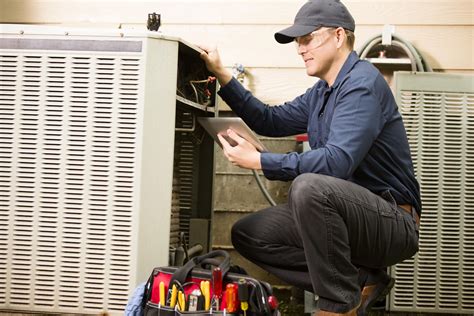The HVAC industry has been growing rapidly in recent years, driven by increasing demand for heating, ventilation, and air conditioning systems in residential and commercial buildings. As the industry continues to expand, it's essential to understand the demographics of HVAC technicians, including their average age. In this article, we'll delve into the average age of HVAC techs and explore the implications of this trend for the industry.
The Importance of Understanding HVAC Technician Demographics
Understanding the demographics of HVAC technicians is crucial for several reasons. Firstly, it helps us identify potential labor shortages and develop strategies to attract and retain new talent. Secondly, it enables us to tailor training programs to meet the needs of the current workforce. Finally, it provides valuable insights into the industry's future direction and helps us prepare for upcoming challenges.
What is the Average Age of HVAC Techs?
According to the Bureau of Labor Statistics (BLS), the median age of HVAC technicians in the United States is 44.6 years old. However, this number can vary depending on factors such as location, employer, and level of experience. For instance, HVAC technicians working in large cities tend to be younger than those working in smaller towns or rural areas.

Factors Contributing to the Aging Workforce
Several factors contribute to the aging workforce in the HVAC industry. These include:
- Lack of young entrants: The HVAC industry has traditionally been slow to attract young people, leading to a lack of new talent entering the workforce.
- Retirement of baby boomers: The baby boomer generation is retiring in large numbers, leading to a significant loss of experienced technicians.
- Limited training programs: While there are some excellent training programs available, many HVAC technicians learn through on-the-job training, which can be limited in scope and availability.
The Implications of an Aging Workforce
An aging workforce can have significant implications for the HVAC industry, including:
- Labor shortages: As experienced technicians retire, there may be a shortage of skilled workers to replace them, leading to increased competition for talent and higher labor costs.
- Knowledge transfer: When experienced technicians retire, they take their knowledge and expertise with them, which can lead to a loss of institutional knowledge and decreased productivity.
- Technological advancements: The HVAC industry is rapidly evolving, with new technologies and techniques emerging regularly. An aging workforce may struggle to adapt to these changes, leading to decreased efficiency and effectiveness.

Strategies to Attract and Retain Young HVAC Techs
To address the aging workforce, the HVAC industry needs to attract and retain young technicians. Here are some strategies to achieve this:
- Develop apprenticeship programs: Establish apprenticeship programs that provide young people with hands-on training and mentorship.
- Offer competitive salaries and benefits: Offer competitive salaries and benefits to attract and retain young talent.
- Create a positive work environment: Foster a positive work environment that encourages collaboration, teamwork, and professional development.
- Provide opportunities for advancement: Provide opportunities for advancement and career growth to keep young technicians engaged and motivated.

Conclusion: The Future of the HVAC Industry
The average age of HVAC techs is a critical issue that requires attention from industry stakeholders. By understanding the demographics of HVAC technicians, we can develop strategies to attract and retain young talent, address labor shortages, and ensure the long-term sustainability of the industry.
As the HVAC industry continues to evolve, it's essential to prioritize the needs of the current workforce and prepare for the challenges of the future. By working together, we can create a brighter future for the HVAC industry and ensure that it remains a vibrant and dynamic sector for years to come.
Gallery of HVAC Technicians





What is the average age of HVAC technicians?
+The average age of HVAC technicians is 44.6 years old, according to the Bureau of Labor Statistics.
What factors contribute to the aging workforce in the HVAC industry?
+Factors contributing to the aging workforce include the lack of young entrants, retirement of baby boomers, and limited training programs.
How can the HVAC industry attract and retain young technicians?
+The industry can attract and retain young technicians by developing apprenticeship programs, offering competitive salaries and benefits, creating a positive work environment, and providing opportunities for advancement.
